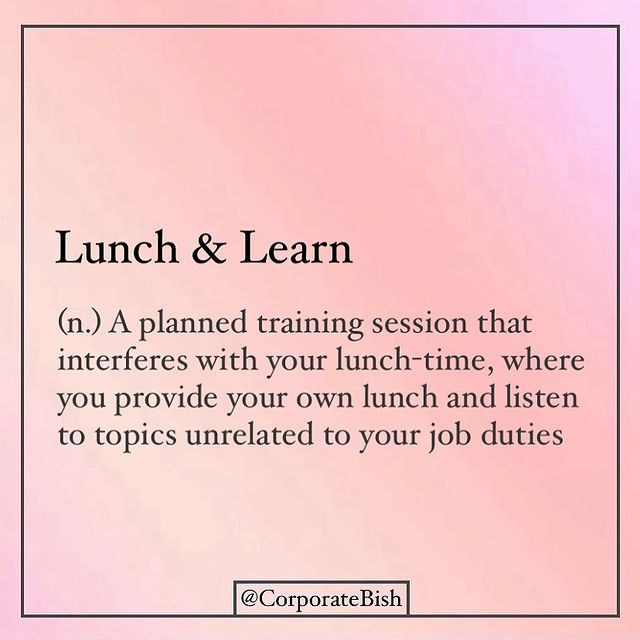Thought-provoking Things Worth Sharing - Issue #150
Through the other end of the hurricane - and thinking about social media.

Hurricane Francine passed through our area of South Louisiana earlier this week. As a result, we spent a lot of time planning and prepping and less time gathering content this week.
One interesting post I found this week was about how we are the ones who train our social media algorithms through our actions.
You're Training Your Social Media Algorithm Every Day
This week was an excellent example of that.
Welcome to this week’s collection of thought-provoking things. For each issue, I’ll share information about careers and workplace culture, mental health in the workplace, talent development, and important information about privacy, security, and legal tech.
You can find out all about me here - Mike McBride Online.
The article points out that the algorithm is always responding to our interactions. The more we interact with a subject, the more we’ll see it. I’ve contended that this is a terrible way to run an algorithm because it doesn’t differentiate between the context of our interactions. For example, if I see a post containing misinformation and drop a link to Snopes to correct it in the comments, the algorithm assumes I want to see more misinformation.
That only encourages users to ignore blatant misinformation when family and friends share it. The alternative is getting fed more of it.
I have experienced that.
This week, I’ve had a more than passing interest in the weather. Now that we are through the hurricane, how long will it take social media to adjust to showing me less of that?
I’ve also experienced the not-so-subtle tweaks when I’m in a different location. (I left Ohio on Aug. 10 after being there three weeks, and my feeds are still hitting me with local events and ads a month later. The same goes for Nashville, where I spent five days for the ILTA Conference.)
The one algorithm that seems most flexible and most accurate is TikTok. Because it adapts so quickly, I see the impacts of small actions. And I realize my mistakes rapidly as well. Pause to watch a longer political video, and instantly, my feed will turn very political. If I like a video about a new restaurant, I’m on Foodie-tok.
Most importantly, when I see it happening, I start to interact more with the things I want to see again, and it will switch back.
It’s responding to my actions or lack of action in some cases. My experience is mostly about who I follow and interact with. It’s the ultimate case of “your mileage may vary.”
Except for X-Twitter, which sends me notifications for whatever Elon is talking about, no matter how often I tell it not to and how little time I spend on the platform. That’s not an algorithm anymore. It’s just a propaganda machine. ;-)
Careers and the Workplace
Linked - Looks like genAI may kill the IT help desk and other IT jobs!
On a deeper level, though, I remember that before I got into eDiscovery and legal tech, I worked in tech support. Many of the smartest people in legal and cybersecurity started at a helpdesk. It's the starting point for many long and successful IT careers. So, what will the next generation of tech workers be missing if that role goes away?
Another catchy term? - Have you ever been guilty of Fauxductivity? This post is for you.
The interesting part of that article is how often CEOs and managers fake being productive and assume employees are doing the same when they aren’t.
In my experience, it’s not a straight path as much as a swirling mass of confusion —Career Advancement is Not Always an Upward Path.
Artificial Intelligence
Linked - Is AI the new bloatware?
Whether you consider it bloatware or not may depend on your plan to use AI on a mobile device, but one thing is for sure about all hardware and many services that are adding AI features: They're getting more expensive.
Always an important consideration - Thinking About Equity and Bias in AI.
It’s complicated - There are many reasons why companies struggle to exploit generative AI, says Deloitte survey.
The Top Five Questions Legal Should Ask IT During Copilot for Microsoft 365 Adoption
Training and Development
Free training? Yes, please - 6 Critical Human Skills for the Age of AI (Plus Free Courses That Teach Them)
Also, IBM is offering some free training - IBM will train you in AI fundamentals for free, and give you a skill credential - in 10 hours
Mental Health in the Workplace
Linked - Employee Wellbeing Hinges on Management, Not Work Mode
Managers haven't been taught how to lead with well-being in mind, so they fall back on old habits. Those habits can eliminate the well-being benefits of remote work, for example, by creating a less flexible workday by micromanaging how remote employees spend their time, etc.
No one will enjoy that, but if your managers don't know any better, there's a good chance that is what you'll get. Do some research, build better managers, and you'll have better employees across the organization.
This might help with that goal - How to Foster a Culture of Wellness in the Workplace.
Privacy, Security, and Legal Tech
Linked - ILTA 2024 Survey suggests chasm between small and large law firms’ Gen AI plans & use
It's an important reminder. Sure, you can hand out licenses for Copilot and let attornies start using it, but doing so safely is a much larger project.
Projects require resources.
Niki Black has been on top of this subject, and I wanted to share both of these updates:
That’s all, folks. If you found something interesting in this week’s newsletter, please share it with your friends. It’s the best way to help support the effort I put in each week to share this with you.


